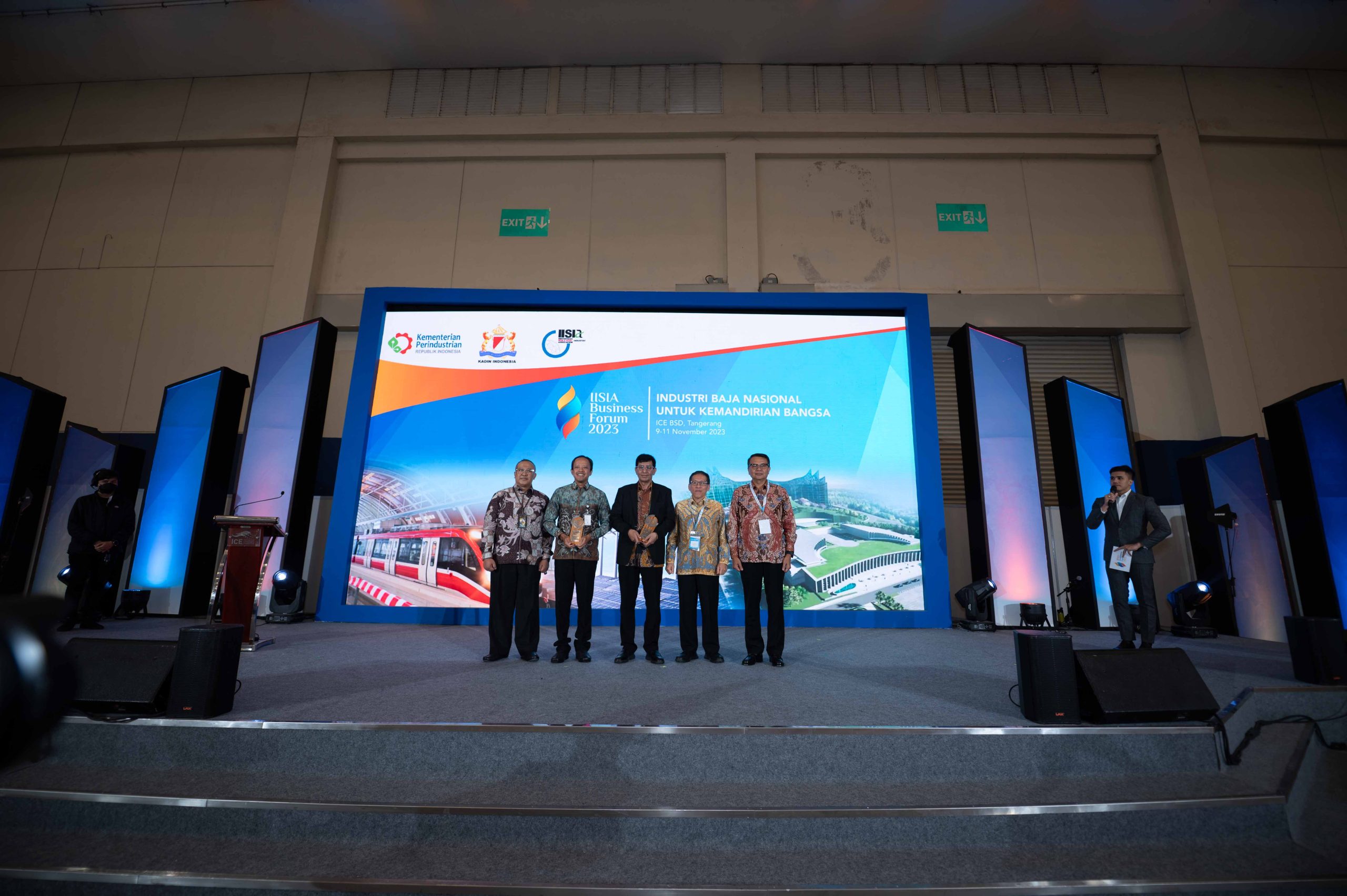The Ministry of Industry (Kemenperin) reaffirmed its commitment to accelerating the transformation of the national steel industry through its active participation in the Iron-Steel Summit & Exhibition Indonesia (ISSEI) 2025 (24/5).
As an annual strategic platform, ISSEI strengthens collaboration among the government, industry associations, and business players to build a resilient and sustainable steel sector.
With the theme “With the National Steel Industry, Building the Foundation for Indonesia Emas 2045,” ISSEI 2025 serves as a critical opportunity for Kemenperin to deliver policy directions and reinforce cross-sector cooperation.
Deputy Minister of Industry Faisol Riza emphasized the steel industry’s strategic role across multiple sectors.
“The steel industry is often referred to as the ‘mother of industry’ because it supports many other key sectors such as construction, automotive, energy, and manufacturing. It also plays a vital role in infrastructure development and is a major driver of inclusive and sustainable economic growth,” said Deputy Minister Riza during the ISSEI 2025 closing in Jakarta, Friday (23/5).
Strong Growth and Rising Global Position in Steel Production
Deputy Minister Riza highlighted the positive performance of Indonesia’s basic metal industry, which recorded double-digit growth of 14.47% in the first quarter of 2025.
Investment in the basic metal, fabricated metal, non-machinery, and equipment subsectors reached IDR 67.3 trillion, contributing about 14.5% of total national investment between January and March 2025.
Indonesia’s crude steel production also saw a significant rise, reaching 17 million tons in 2024. This milestone placed the country 14th globally among steel-producing nations.
Policy Support and National Standard Enforcement
To support long-term industrial growth, Kemenperin has issued several strategic policies.
These include trade safeguards and import controls to protect local producers from unfair international practices.
The ministry also strengthened and expanded the implementation of the Indonesian National Standard (SNI) to improve the quality and competitiveness of domestic steel products.
Promotion of domestic product usage is being intensified alongside efforts to secure competitive gas supply through the Harga Gas Bumi Tertentu (HGBT) scheme.
This program now benefits many steel companies. Additionally, the ministry is facilitating fiscal incentives, such as tax allowance, tax holiday, and the preparation of a master list for strategic raw materials.
International Cooperation and Sustainable Practices
Kemenperin is actively encouraging domestic steel producers to collaborate with the Southeast Asia Iron and Steel Institute (SEASI) to improve efficiency and apply sustainable resource practices.
This is crucial in facing global market access challenges, particularly in response to the European Union’s implementation of the Carbon Border Adjustment Mechanism (CBAM).
“As part of the transition toward green steel production, the government has implemented various initiatives, including support programs for industries adopting environmentally friendly practices, awards for stakeholders committed to sustainability, fiscal and non-fiscal incentives, and enforcement of green industry standards,” said Riza.
Innovation and Collaboration to Meet Global Competition
Riza reminded stakeholders of the need to remain alert and forward-thinking amid intensifying global competition.
He stressed that continuous innovation and collaboration are key to unlocking the full potential of Indonesia’s steel industry and fulfilling national commitments to sustainability and decarbonization.
“This summit is not only a platform for strengthening business relationships but also a forum to discuss and identify future challenges and opportunities. I truly hope this event will strengthen cooperation and continue building a strong, sustainable, and globally competitive steel industry ecosystem. Let us contribute our best to advance Indonesia’s steel industry and support national progress towards Indonesia Emas 2045,” he said.
PHOTO: ISSE
This article was created with AI assistance.
Read More






 Friday, 27-02-26
Friday, 27-02-26







